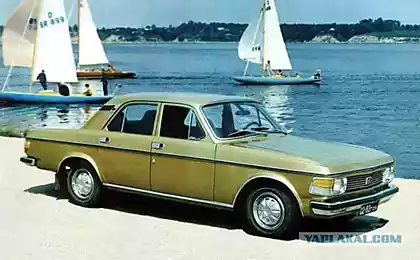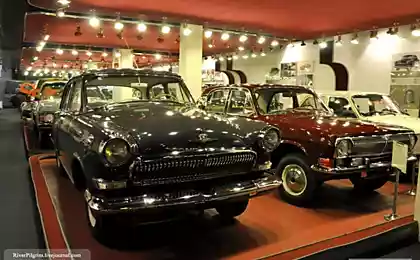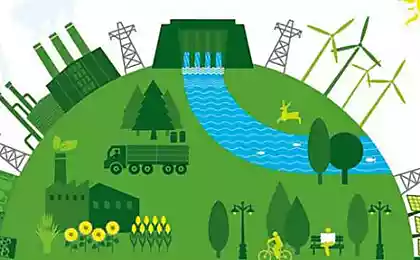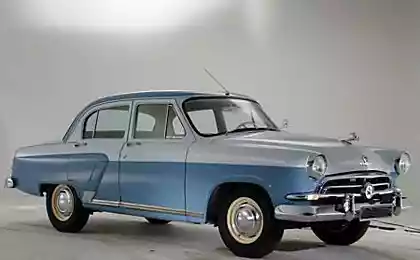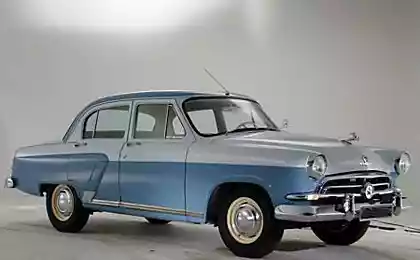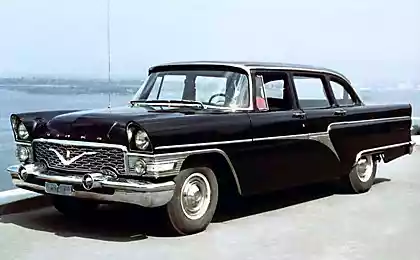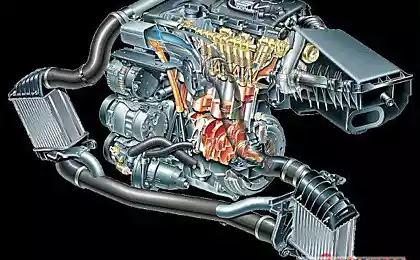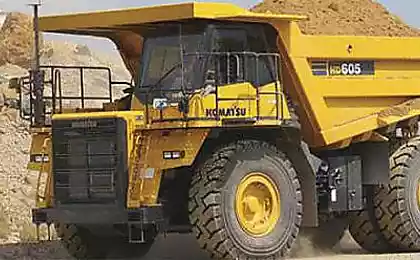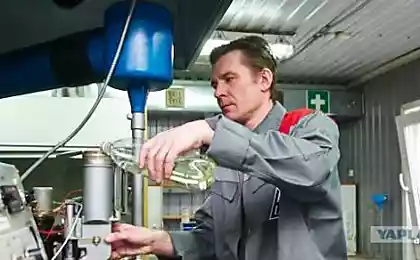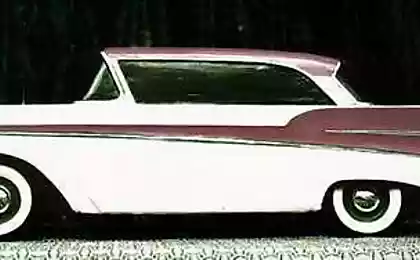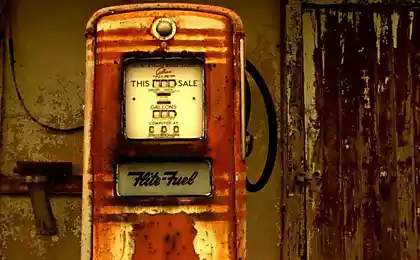479
"Getmobile": ecology and economy?
Have you ever wondered about the transfer of the car on gas? If not, then it would seem that most of the time.
First, for environmental reasons. Russia's slowly moving in the direction of more stringent requirements for compliance with environmental standards the content of harmful substances in exhaust gases. And, ideally, a responsible attitude to the problems of air pollution should come from the authorities and from "below" − those who breathe them. And environmentally friendly "getmobile" relative to gasoline is far higher.
Second, this is the case when, apparently, care about the environment not only pleasant but also profitable. It is obvious that the price of gasoline in the coming years will set new records (the"tax maneuver" the government leaves no room for doubt).
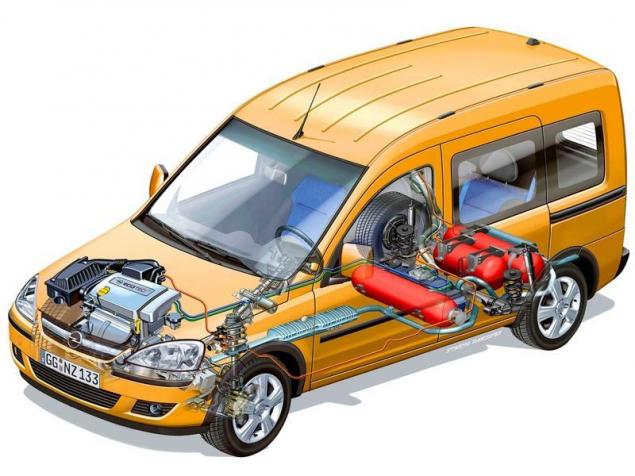
Meanwhile, the purchase of electric cars – still a very exotic idea in the Russian reality. Despite the fact that in 2015 in Moscow and St. Petersburg should be a network of 100 charging stations for electric cars, while it only plans. To recharge your electric car going no more than 150 km, in Moscow, still can not in more than three dozen places.
But the gas is more obvious resource. Moreover, its use in transport in recent years has stimulated the government. Thus, the subjects of the Russian Federation recommended to reduce the rate of vehicle tax for vehicles using natural gas as a motor fuel.
A second important measure authorities call for gas stations to convert the station, making possible the filling them natural gas.
Public transport nowhere to go: the bus parks in the cities ordered the transfer of 50% of the equipment on the gas.
But should private owners of cars to think about in order to follow the example? This is an extremely controversial issue and not everyone even benefits will help to gain from such a transition.
At first glance, the benefits from the change of fuel is obvious. Gas is cheaper than gasoline by about two times and below. In addition, the load on the piston of the engine becomes less, which positively affects condition of the vehicle and reduces maintenance costs.
Sounds great, and you are already thinking about switching to a new type of fuel? It will have to spend money to convert the car to run on gas or to buy a new more expensive "gas" configuration. More profitable, of course, to convert the costs are not very large and is unlikely to exceed 50 thousand rubles.
How much will monthly to win the driver of a passenger car class? If his annual mileage is about 30 thousand km per year, it will save about 3.5 thousand rubles per month, or more than 40 thousand rubles a year. But if he goes a bit – about 10 thousand km per year, the monthly benefit barely exceeds 1 thousand roubles, and the annual will be approximately 12-13 thousand rubles. It turns out that in the first case, the conversion will pay for itself in about a year, and the second only five years. The obvious conclusion that tangible benefits from switching to gas, the driver needs to drive 50 miles a day, and at least twice more.
However, those who spend long hours behind the wheel, may not get significant economic bonuses. The reason is the poor infrastructure of gas filling stations in Russia. Yet, despite a government decree, adding natural gas product line gas station is a leisurely pace.
It would seem that the output is a special gas-filling compressor station (AGFCS), which in our country there are more than 200 units. By the way, most of them belong to the category of unprofitable due to lack of customers. And the reason is not a conservative car owners, the habit of preferring petrol engines. The case, first of all, the location – most of the CNG stations are located outside cities. What kind of savings can say, if only the refills need to do about 100 miles additional mileage?
Obviously, it is necessary to develop gas network in the cities. However, the legislators who cared for the decrease in the rate of vehicle tax for getmobile", for some reason forgot about one serious limitation. Talking about made for more than 20 years ago and clearly needed review the ban on construction of CNG filling stations inside cities.
It turns out that if you do not start the development of a network of small filling stations, no benefits, no growing the price of gasoline will not make the transition to gas really feasible for car owners. Except for the fact that some of them may live far outside the city near the rare CNG filling stations and many kilometers every day to make the trip to metropolis to work. But it is unlikely that these individual cases will provide a growing share of natural gas fuel in the total consumption of up to 4.5% by 2020, as recorded in government documents. So, it's time to take care of better incentives than right now.published
P. S. And remember, only by changing their consumption — together we change the world! ©
Join us in Facebook , Vkontakte, Odnoklassniki
Source: greenoffon.com/ru/post/gazomobil-ekologiya-i-ekonomiya
First, for environmental reasons. Russia's slowly moving in the direction of more stringent requirements for compliance with environmental standards the content of harmful substances in exhaust gases. And, ideally, a responsible attitude to the problems of air pollution should come from the authorities and from "below" − those who breathe them. And environmentally friendly "getmobile" relative to gasoline is far higher.
Second, this is the case when, apparently, care about the environment not only pleasant but also profitable. It is obvious that the price of gasoline in the coming years will set new records (the"tax maneuver" the government leaves no room for doubt).

Meanwhile, the purchase of electric cars – still a very exotic idea in the Russian reality. Despite the fact that in 2015 in Moscow and St. Petersburg should be a network of 100 charging stations for electric cars, while it only plans. To recharge your electric car going no more than 150 km, in Moscow, still can not in more than three dozen places.
But the gas is more obvious resource. Moreover, its use in transport in recent years has stimulated the government. Thus, the subjects of the Russian Federation recommended to reduce the rate of vehicle tax for vehicles using natural gas as a motor fuel.
A second important measure authorities call for gas stations to convert the station, making possible the filling them natural gas.
Public transport nowhere to go: the bus parks in the cities ordered the transfer of 50% of the equipment on the gas.
But should private owners of cars to think about in order to follow the example? This is an extremely controversial issue and not everyone even benefits will help to gain from such a transition.
At first glance, the benefits from the change of fuel is obvious. Gas is cheaper than gasoline by about two times and below. In addition, the load on the piston of the engine becomes less, which positively affects condition of the vehicle and reduces maintenance costs.
Sounds great, and you are already thinking about switching to a new type of fuel? It will have to spend money to convert the car to run on gas or to buy a new more expensive "gas" configuration. More profitable, of course, to convert the costs are not very large and is unlikely to exceed 50 thousand rubles.
How much will monthly to win the driver of a passenger car class? If his annual mileage is about 30 thousand km per year, it will save about 3.5 thousand rubles per month, or more than 40 thousand rubles a year. But if he goes a bit – about 10 thousand km per year, the monthly benefit barely exceeds 1 thousand roubles, and the annual will be approximately 12-13 thousand rubles. It turns out that in the first case, the conversion will pay for itself in about a year, and the second only five years. The obvious conclusion that tangible benefits from switching to gas, the driver needs to drive 50 miles a day, and at least twice more.
However, those who spend long hours behind the wheel, may not get significant economic bonuses. The reason is the poor infrastructure of gas filling stations in Russia. Yet, despite a government decree, adding natural gas product line gas station is a leisurely pace.
It would seem that the output is a special gas-filling compressor station (AGFCS), which in our country there are more than 200 units. By the way, most of them belong to the category of unprofitable due to lack of customers. And the reason is not a conservative car owners, the habit of preferring petrol engines. The case, first of all, the location – most of the CNG stations are located outside cities. What kind of savings can say, if only the refills need to do about 100 miles additional mileage?
Obviously, it is necessary to develop gas network in the cities. However, the legislators who cared for the decrease in the rate of vehicle tax for getmobile", for some reason forgot about one serious limitation. Talking about made for more than 20 years ago and clearly needed review the ban on construction of CNG filling stations inside cities.
It turns out that if you do not start the development of a network of small filling stations, no benefits, no growing the price of gasoline will not make the transition to gas really feasible for car owners. Except for the fact that some of them may live far outside the city near the rare CNG filling stations and many kilometers every day to make the trip to metropolis to work. But it is unlikely that these individual cases will provide a growing share of natural gas fuel in the total consumption of up to 4.5% by 2020, as recorded in government documents. So, it's time to take care of better incentives than right now.published
P. S. And remember, only by changing their consumption — together we change the world! ©
Join us in Facebook , Vkontakte, Odnoklassniki
Source: greenoffon.com/ru/post/gazomobil-ekologiya-i-ekonomiya
The coming era of unlimited – and free – clean energy
Schrödinger's cat in mind: why our brain is like a quantum field

